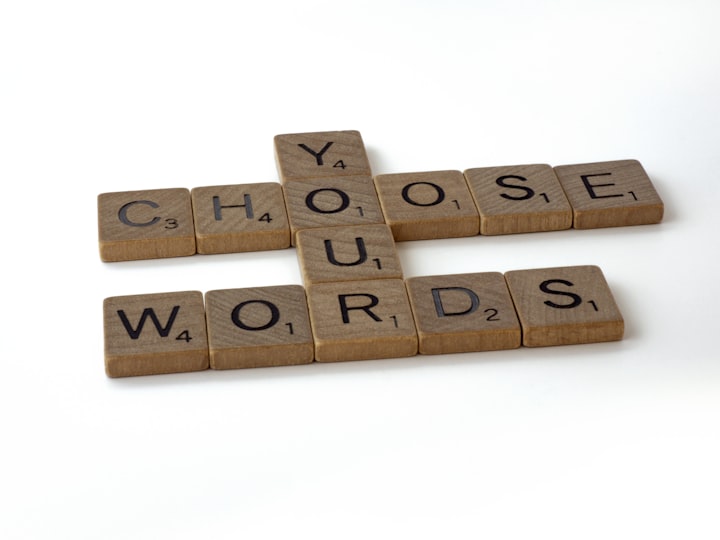
01/29/2022
Power in Words
I like words. That tracks, as I am reasonably good at putting one word after another. As Odysseus told Achilles, “We play with the toys the gods give us”. But more than any of my paltry attempts to make magic with ink, I love that words can change things.
One cannot deny their power throughout time. Consider two Martin Luthers. One said, “I have a dream.” Thousands followed him and changed the face of United States social policy. The other pasted (or nailed, as the story is told) 95 theses to the door of a church in Wittenberg and split one of the major religions of the world in two. And the argument sparked by this is still going on 500 years later. But more importantly, because of his words, the bible was translated into German. This was done to give those esteemed words to the German people. What an exercise of defiance. To take those words, the sole property held by the educated and priestly class. Not just the words, but “The Word” as Christians so often name their most sacred of texts. To take them and give them to an entire community. To seize that power and change the course of the entire western world.
I do not pretend or desire to be able to use words on this level or in such a manner. However, I do acknowledge their power. Their potential. Words are intentions communicated. Thoughts revealed. Even one’s entire history can be read by their use of language.
“Language always gives you away.” –George Carlin—
The manipulation of language has always been in the toolbox of those who seek to attain or maintain power. Political Correctness, for example, is not a conspiracy to alter our thinking as some might suggest, nor is it an overt attack on our freedom of speech. It is simply the politicians’ attempt to stay legitimate in the eyes of their constituency. To demonstrate that, they too, care for the sensitivities of marginalized people. Whether they do or not is immaterial to this discussion. The point is, they use more carefully crafted words to be relevant to more voters. That is the power of the words those voters use. That is the influence they carry from bottom up.
Those who argue against political correctness are, on some level, jealous that their words aren’t as relevant as those seeking to refine the way we communicate. It takes some of their power. They are no longer able to use their words carelessly without disdain or consequences. In this way, it feels to them as if some of their freedom has been taken. But the modern movements towards more inclusive and enlightened language (albeit they are suffering some growing pains) are, again, not some affront to the first amendment. One can still speak like an insensitive prick. People are just noticing more and more now that some of those words, once uttered so frivolously carry hate or ignorance and they are no longer remiss to point it out.
This is on the same spectrum but the other end from iconoclasm and book burning. Both seek to focus words for effect. One by controlling or removing them completely, the other by more accurately identifying their use and mention. It is not surprising that those who have a standing ignorance of their own speech might be offended at being corrected as if they were school children. However, if we really consider how they might be feeling, it isn’t a hard leap to assume that deep down, they might be afraid that they are simply wrong about some of the words they are using and have been this whole time.
Think about it. If a seed is planted in your mind that you are wrong about something, how long before anxiety over this ensues? How long before you must choose to change your understanding or choose to ignore that seed as it grows? And such is the depth and scope of power in your words, that the possibility of error on that level is truly frightening. How much would you have to internally examine to root out where you began to use your words so callously? Would it even matter if you intended to or not? Hell, you need those same words to even ask yourself these questions in the first place.
The abyss created by this meta-conscious audit is vast and potentially maddening. Rather than face this deep intellectual honesty of introspection, would it not be preferrable to shift the burden of proof to the accuser by simply asking back, “Why are you so sensitive? I was just kidding.” For if one’s words are rendered obsolete or offensive, what power could one claim?
Words are not everything mind you, but they are nearly everything when we enter the realm of communication. So inextricable to our waking minds and daily lives. This is why I love and respect them. This is why I applaud their constant evolution. The drive to get them right. To use them well. To get ever closer to those experiences that are truly ineffable. A finer goal cannot be put into words.
About the Creator
Andrew Rockman
I don't know that there is much I could say that wouldn't sound self-aggrandizing in a bio meant to steer you towards reading my work. I suppose, I should just thank you for offering your time and attention.





Comments
There are no comments for this story
Be the first to respond and start the conversation.